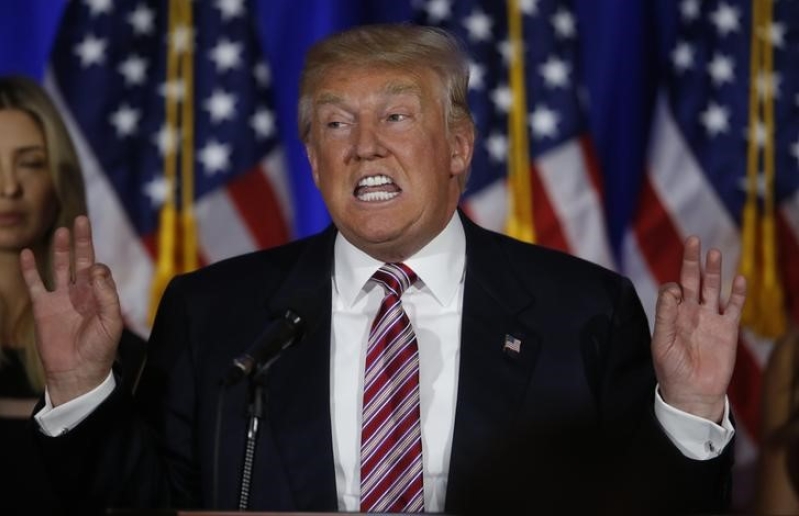
Donald Trump, the presumptive Republican nominee, has revealed that he does, in fact, plan on asking Jesus for forgiveness after coming under fire from the Christianity community for stating he's unsure if he's ever done so.
"I will be asking for forgiveness, but hopefully I won't have to be asking for much forgiveness. As you know, I am Presbyterian and Protestant. I've had great relationships and developed even greater relationships with ministers," the billionaire businessman-turn politician said in an interview with political columnist Cal Thomas on Wednesday.
"We have tremendous support from the clergy. I think I will be doing very well during the election with evangelicals and with Christians," he added
Last year, Trump was widely criticized for stating, "I try not make mistakes where I have to ask forgiveness."
He later followed that up by stating: "I go to communion and that's asking forgiveness, you know, it's a form of asking forgiveness."
The presidential hopeful also shared his thoughts on Jesus with Thomas, stating, "Jesus to me is somebody I can think about for security and confidence. Somebody I can revere in terms of bravery and in terms of courage and, because I consider the Christian religion so important, somebody I can totally rely on in my own mind."
Trump added that if elected, he will serve as an advocate for Christians worldwide.
"In the Middle East - and this is prior to the migration - you had almost no chance of coming into the United States. Christians from Syria, of which there were many, many of their heads ... chopped off. If you were a Muslim from Syria, it was one of the easiest places to come in (to the U.S.)," he said. "I thought that was deplorable. I'm going to treat my religion, which is Christian, with great respect and care.
Trump has gained the support of a number of religious leaders, including Robert Jeffress, pastor of First Baptist Church, and President of Liberty University Jerry Falwell Jr. He has also been endorsed by Willie Robertson, the conservative Christian star of the reality show "Duck Dynasty."
However, many in the Evangelical community have been critical the presumptive GOP nominee and argued that his policies, such as his proposed ban on Muslims entering the U.S. and his U.S.-Mexico border wall, do not line up with Christian values.
Recently, Russell Moore, head of the Southern Baptist Convention's (SBC) Ethics and Religious Liberty Commission, said his "primary prayer for Donald Trump is that he would first of all repent of sin and come to faith in Jesus Christ."
"That's my prayer for any lost person," Moore said. "And then that he would be somebody who would act in terms of principles of justice, which would mean a change, not only in terms of the way in which he's changing the moral character of people, including the people that are supporting him and getting on the bandwagon, having had to excuse things that they've never had to excuse before and then of course in terms of being a ruler in a limited sense within an American constitutional framework who understands principles of justice."
In an op-ed published on his website in March, Moore argued that voters should not hesitate to vote for a "minor party candidate" instead of two major party candidates who are both "morally disqualified."
"As Christians, we are not responsible for the reality of our two-party system or for the way others exercise their citizenship, but we will give an account for how we delegate our authority," Moore stated. "Our primary concern is not the election night victory party, but the Judgment Seat of Christ."






